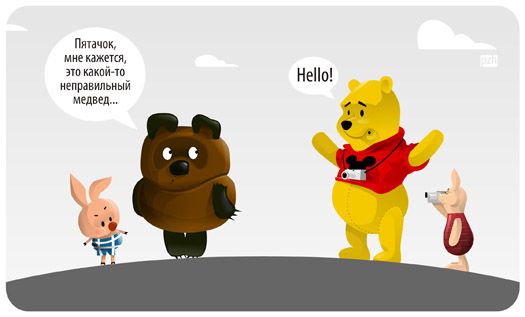Ура-патриот: flag-waver, jingoist

Love of one's land, people and way of life has certainly existed in Russia for as long as there have been Russians. Patriotism, however, is a relatively new word. The word itself, патриотизм, came to Russian from the Greek via French, either during the reign of Peter the Great or a few decades later - once loyalty to the local grand prince was replaced by loyalty to the emperor and country.
There are a few native Russian words for "love of the fatherland," although they are all quite archaic: отчизнолюбивый, отчизнолюб, отчизник. These are so old fashioned your Russian friends would blink if you used them; even the spell-checker doesn't recognize them.
So we've really only got патриотизм and патриот. What do they mean to Russians? Good question. On one web site a young person writes, это чувство гордости за свою страну (it's a feeling of pride in one's country). That sounds good until you come across the word псевдопатриот -- pseudo-patriot. As far as I can tell, this can be defined as "someone who considers himself a patriot but whose political views are different from mine." This gets complicated fast. As someone rightly asks, Как будем решать, чей патриотизм патриотичней? (How are we going to decide whose patriotism is more patriotic?)
When a patriot crosses the line from healthy love of homeland to unhealthy nationalism, Russians call him квасной патриот (a super-patriot). One dictionary defines this as "nationalism falsely perceived as patriotism." Another expressive set of words is ура-патриот and ура-патриотизм (flag-waver, flag-waving, literally a "hurrah-shouting patriot").
In English, this is all nicely conveyed by the words jingoism and jingoist - except for the slight problem of their derivation. They come from a music hall song popular during the British-Russian confrontation over Turkey in 1878: "We don't want to fight, yet by Jingo if we do, we've got the ships, we've got the men, and got the money too!" People who wanted to go to war against Russia were "Jingoes," which came to mean nationalistic patriots. It's a bit odd to translate the word for flag-waving, hurrah-shouting Russian patriot with a word that once meant someone who wanted war against Russia. On the other hand, let's look at the Russian: ура is from the Tatar language and means "beat" or "hit," (presumably the Tatar battle cry). So if Russian patriots are shouting in Tatar and using a French word to describe themselves, I guess jingoism is just fine.
With regard to patriots you can also hear the phrase Россия - родина слонов (Russia is the homeland of elephants.) This is from a joke poking fun at Stalin's rewriting of history to "prove" that the lightbulb, airplane and steam engine were all invented by Russians. Ты знаешь его патриотизм: Россия - родина слонов. (You know his kind of patriotism: Russians invented the wheel.)
Then there's the marvelously expressive шапкозакидательство (literally "tossing-caps-up-in-the-air-ness"). This means an arrogant faith in victory or success; the image is a bunch of guys tossing their caps up in the air and shouting, "Whipping them lily-livered toads will be a piece of cake!" Like most marvelously expressive Russian words, it is miserable to translate. Шапкозакидательство выглядело как бесстрашие перед лицом противника, а трезвая оценка его сил воспринималась подчас как неверие в силы Красной Армии. (Certainty of an easy victory seemed like confronting the enemy without fear, while a sober assessment of the enemy's power was at times perceived as lack of faith in the power of the Red Army.)

Russians can be fiercely critical of what one person calls извечное русское шапкозакидательство (eternal Russian cap-tossing). Шапкозакидательство - это наша, к сожалению, национальная особенность. (Tossing our caps in the air as if victory were already in the bag is, unfortunately, a national trait.)
Oh, not so, not so. The belief that a war can be won in an afternoon seems to be a universal "patriotic" belief these days.
| 











